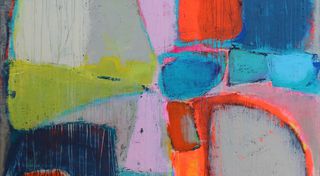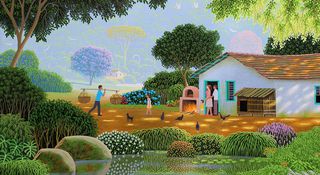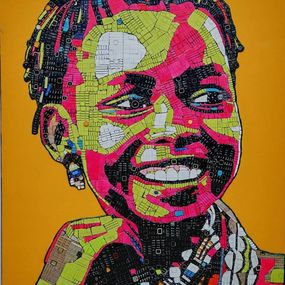
Harlem Renaissance
The Harlem Renaissance was an intellectual and cultural revival of African American music, dance, art, fashion, literature, theater, politics, and scholarship that took place in Harlem, Manhattan, New York, in the 1920s and 1930s. At the time, it was known as the "New Negro Movement," named after The New Negro, an anthology published in 1925 by Alain Locke. The movement also included the new African American cultural expressions in the urban areas of the Northeast and Midwest of the United States, affected by a resurgence of activism in the general fight for civil rights, combined with the Great Migration of African American workers fleeing the racist conditions of the Jim Crow Deep South, with Harlem being the final destination for the largest number of those who migrated north.
Although centered in the Harlem neighborhood, many French-speaking Black writers from the African and Caribbean colonies who lived in Paris were also influenced by the movement, which lasted from about 1918 until the mid-1930s, with many of its ideas lasting much longer. The Harlem Renaissance is seen as a renaissance of African American arts. This movement has been linked by many cultural theoreticians as an extended cultural force in the United States through the decades: from the age of stride piano jazz and blues to the ages of bebop, rock and roll, soul, disco, and hip-hop.
Artsper showcases the work of many artists furthering this movement of Black artistry. Discover the work of Jacob Lawrence, Aaron Douglas, Kara Walker or Lorna Simpson, to name a few artists who partook or followed in the movement's footsteps.





